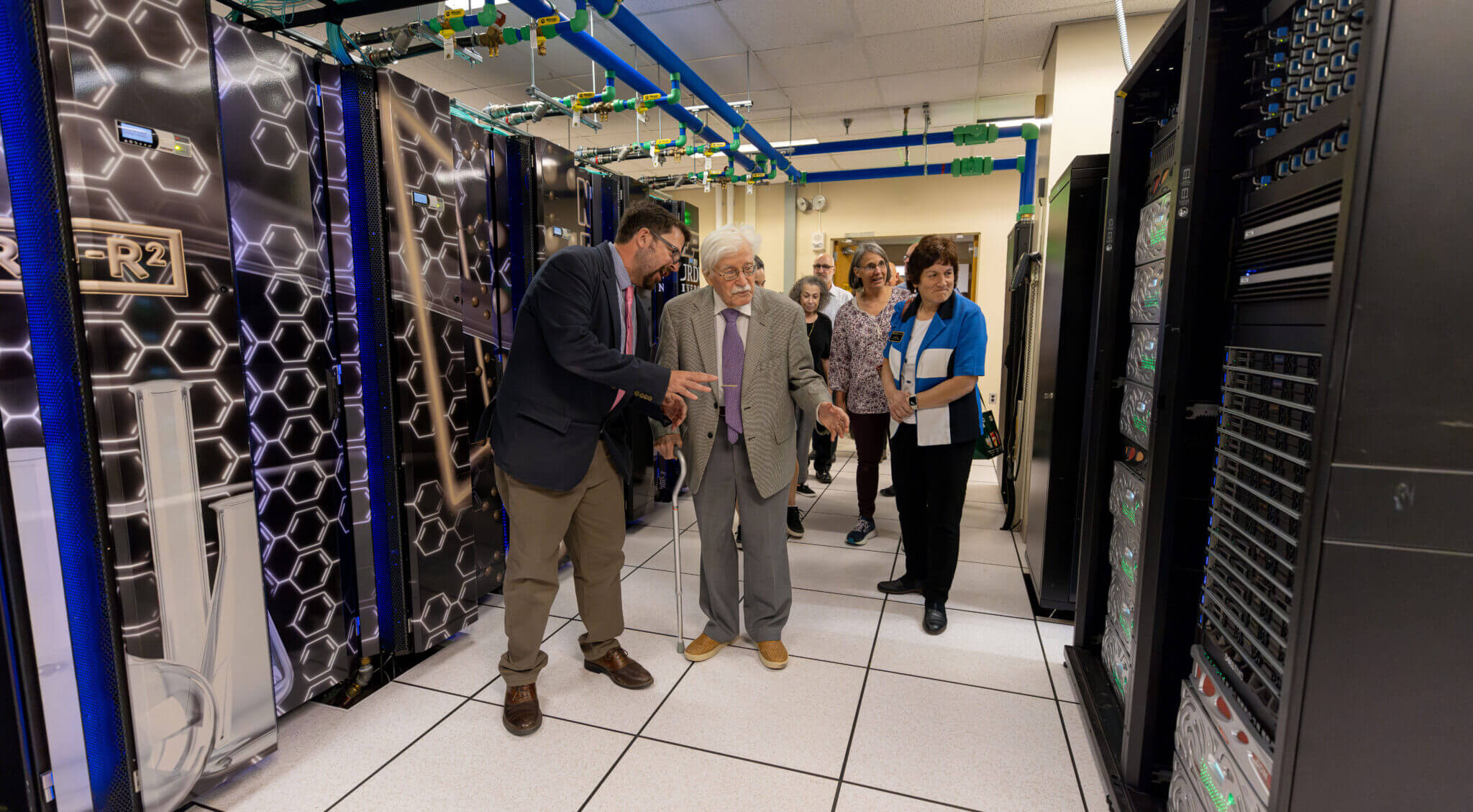New ranking demonstrates Purdue prominence in AI research supercomputing
WEST LAFAYETTE, Ind. — Purdue University’s newest supercomputing community cluster Gautschi has debuted at No. 7 among U.S. universities and in the top third of the world’s most powerful supercomputers listed in the new Top500 list. The ranking was released in Atlanta this week at SC24, an international conference for high-performance computing, networking, storage and analysis.
Gautschi also ranks No. 43 on the Green500 list of the world’s most energy-efficient supercomputers, with only three other universities ranking higher.
“Thanks to Purdue’s continued investment in high-performance computing, Gautschi will provide the resources needed to recruit faculty as part of Purdue Computes, and to enable new discoveries in artificial intelligence,” said Preston Smith, executive director of the Rosen Center for Advanced Computing at Purdue and director of Computing Infrastructure for the Institute for Physical AI. “We look forward to supporting our faculty and students in applying this system to their research and learning.”
The Gautschi cluster features cutting-edge technology for traditional modeling and simulation applications, while also offering NVIDIA’s top-tier solutions for AI applications. Named after Walter Gautschi, professor emeritus of computer science and mathematics, Gautschi is Purdue’s most powerful cluster built so far, with a peak performance of over 10 petaFLOPs, which is the mind-bending equivalent of 10 quadrillion calculations in one second.
Gautschi is the latest advancement in Purdue’s efforts to continually enhance its leadership in advanced research and technology by adopting AI tools and dedicated high-performance computing (HPC) infrastructure. This forward-looking approach has increased the depth and breadth of Purdue’s research capacity, supporting AI-driven research across a wide variety of fields, from precision agriculture and environmental health to biomedical research and advanced engineering.
“Embracing AI tools and consistently upgrading our HPC infrastructure are essential steps in maintaining our leadership in cutting-edge research,” said Karen Plaut, Purdue’s executive vice president for research. “These advancements allow our research community to tackle complex problems at an unprecedented scale, from simulating intricate biological systems to developing next-generation materials. By investing in these technologies, we empower our researchers to push the boundaries of knowledge, drive meaningful discoveries and prepare our institution to meet the evolving demands of science and society.”
Gautschi is joined on the Top 500 list by Purdue’s Anvil supercomputer, which provides a peak performance of 5.3 petaFLOPs to researchers across the nation through the National Science Foundation ACCESS program. In addition, a recent supplemental NSF grant of $5 million has funded the expansion of Anvil’s capabilities to support AI as part of Purdue’s participation in the National AI Research Resource.
Using both supercomputers is critical to the computational research underway by Purdue’s AI research scientists throughout the Purdue system as is the increasing fleet of AI tools that serve over 3,800 research faculty and graduate students across all campuses, colleges and over 66 departments.
About Purdue University
Purdue University is a public research institution demonstrating excellence at scale. Ranked among top 10 public universities and with two colleges in the top four in the United States, Purdue discovers and disseminates knowledge with a quality and at a scale second to none. More than 105,000 students study at Purdue across modalities and locations, including nearly 50,000 in person on the West Lafayette campus. Committed to affordability and accessibility, Purdue’s main campus has frozen tuition 13 years in a row. See how Purdue never stops in the persistent pursuit of the next giant leap — including its first comprehensive urban campus in Indianapolis, the Mitch Daniels School of Business, Purdue Computes and the One Health initiative — at https://www.purdue.edu/president/strategic-initiatives.
Media contact: Amy Raley, araley@purdue.edu













